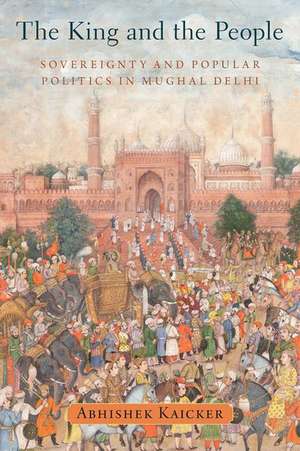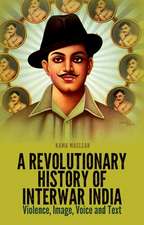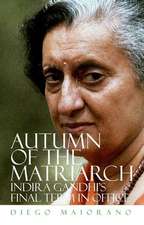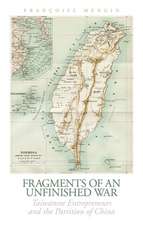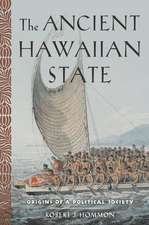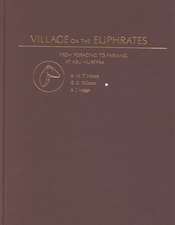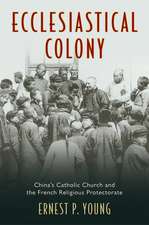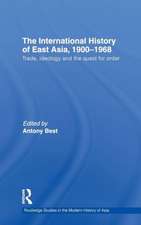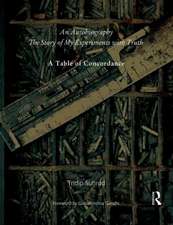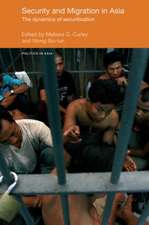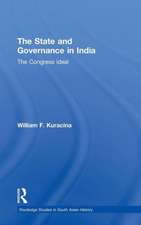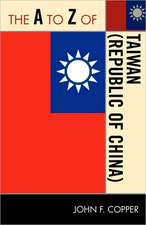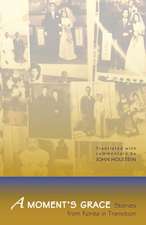The King and the People: Sovereignty and Popular Politics in Mughal Delhi
Autor Abhishek Kaickeren Limba Engleză Hardback – 2 apr 2020
Preț: 673.94 lei
Preț vechi: 783.70 lei
-14% Nou
Puncte Express: 1011
Preț estimativ în valută:
128.96€ • 134.98$ • 107.33£
128.96€ • 134.98$ • 107.33£
Carte tipărită la comandă
Livrare economică 19-25 martie
Preluare comenzi: 021 569.72.76
Specificații
ISBN-13: 9780190070670
ISBN-10: 0190070676
Pagini: 376
Dimensiuni: 244 x 163 x 33 mm
Greutate: 0.66 kg
Editura: Oxford University Press
Colecția OUP USA
Locul publicării:New York, United States
ISBN-10: 0190070676
Pagini: 376
Dimensiuni: 244 x 163 x 33 mm
Greutate: 0.66 kg
Editura: Oxford University Press
Colecția OUP USA
Locul publicării:New York, United States
Recenzii
The book is based on an incredible wealth of Persian manuscripts, which Kaicker reads both with and against the grain, always careful not to flatten out the complexity of the phenomena described and the multiplicity and heterogeneity of voices.
Royal authority is always a relational and dynamic negotiation. Abhishek Kaicker's new study provides a powerful demonstration of this as he explores the changing nature of Mughal sovereignty over the seventeenth and eighteenth centuries....This is a thought-provoking and robust re-consideration of how different groups of Mughal subjects sought in ever-expanding ways to voice not only their own ideas about their place and participation in the life of the realm but also about the power of their sovereign.
I was deeply impressed by Abhishek Kaicker's The King and the People: Sovereignty and Popular Politics in Mughal Delhi (OUP). In this delightful, highly readable book, Kaicker offers up a pioneering study of popular politics during Mughal rule. You'll be amazed at how much shoemakers and coffee contributed to the making of sovereignty in early modern India!
Kaicker belongs to the new generation of academics seeking an alternative view of the Mughal period... In seven very well-researched chapters he covers the century from the founding of the capital Shajahanabad (1639) to Nadir Shah's invasion of India in 1739. He brings in aspects of social history and world history as he grapples with issues of sovereignty and the limits of popular politics. This is a rich, fine study that 21st-century scholars will find very attractive.
The King and the People is an exemplary exploration of the relationship between the Mughal emperor and his subjects in the empire's newly-built capital, Shahjahanbad. Spanning a period of a hundred years, Kaicker tells an enthralling story of how trends and events in the second half of the seventeenth century inadvertently set the stage for the emergence of the people as actors in a regime which saw them only as the ruled. A major intervention in the field of state sovereignty and popular politics.
The King and the People offers an invaluable story of the intersection of popular politics and Mughal sovereignty in the city of Delhi between the seventeenth and eighteenth centuries. Complex, insightful, and drawing on little known Persian-language materials, this book will inform and excite specialists of South Asian history as well as early-modern world historians. Engagingly written and filled with colorful characters and anecdotes, this book will also delight lay readers.
In describing how people woke from a powerful fantasy about the omnipotence and sacrality of Mughal rule to start asserting themselves as a political force in the eighteenth century, Abhishek Kaicker's extraordinary and beautifully crafted book conjures up the often cacophonous voices of Mughal Delhi, both Hindu and Muslim, as they worked out their complicated allegiances to sovereign, city, family, and faith.
A strikingly original and extraordinarily vivid account of the making and unmaking of Mughal sovereignty through centuries of power and poetry, regicide and revolution. Crucial to Kaicker's narrative is the emerging voice of ordinary people in Mughal history, one that both dooms and yet paradoxically preserves it for posterity.
Royal authority is always a relational and dynamic negotiation. Abhishek Kaicker's new study provides a powerful demonstration of this as he explores the changing nature of Mughal sovereignty over the seventeenth and eighteenth centuries....This is a thought-provoking and robust re-consideration of how different groups of Mughal subjects sought in ever-expanding ways to voice not only their own ideas about their place and participation in the life of the realm but also about the power of their sovereign.
I was deeply impressed by Abhishek Kaicker's The King and the People: Sovereignty and Popular Politics in Mughal Delhi (OUP). In this delightful, highly readable book, Kaicker offers up a pioneering study of popular politics during Mughal rule. You'll be amazed at how much shoemakers and coffee contributed to the making of sovereignty in early modern India!
Kaicker belongs to the new generation of academics seeking an alternative view of the Mughal period... In seven very well-researched chapters he covers the century from the founding of the capital Shajahanabad (1639) to Nadir Shah's invasion of India in 1739. He brings in aspects of social history and world history as he grapples with issues of sovereignty and the limits of popular politics. This is a rich, fine study that 21st-century scholars will find very attractive.
The King and the People is an exemplary exploration of the relationship between the Mughal emperor and his subjects in the empire's newly-built capital, Shahjahanbad. Spanning a period of a hundred years, Kaicker tells an enthralling story of how trends and events in the second half of the seventeenth century inadvertently set the stage for the emergence of the people as actors in a regime which saw them only as the ruled. A major intervention in the field of state sovereignty and popular politics.
The King and the People offers an invaluable story of the intersection of popular politics and Mughal sovereignty in the city of Delhi between the seventeenth and eighteenth centuries. Complex, insightful, and drawing on little known Persian-language materials, this book will inform and excite specialists of South Asian history as well as early-modern world historians. Engagingly written and filled with colorful characters and anecdotes, this book will also delight lay readers.
In describing how people woke from a powerful fantasy about the omnipotence and sacrality of Mughal rule to start asserting themselves as a political force in the eighteenth century, Abhishek Kaicker's extraordinary and beautifully crafted book conjures up the often cacophonous voices of Mughal Delhi, both Hindu and Muslim, as they worked out their complicated allegiances to sovereign, city, family, and faith.
A strikingly original and extraordinarily vivid account of the making and unmaking of Mughal sovereignty through centuries of power and poetry, regicide and revolution. Crucial to Kaicker's narrative is the emerging voice of ordinary people in Mughal history, one that both dooms and yet paradoxically preserves it for posterity.
Notă biografică
Abhishek Kaicker is Associate Professor of History, University of California, Berkeley.
